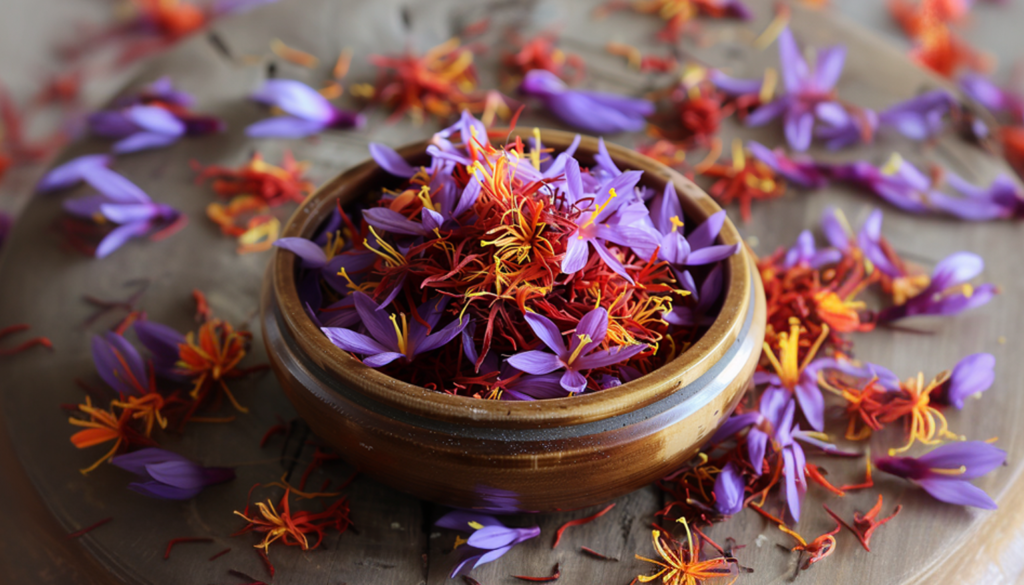Anxiety, that unsettling feeling of worry and unease, affects millions worldwide. While traditional therapies like medication and therapy are invaluable, some seek natural alternatives. Enter saffron, the world’s most expensive spice, now garnering attention for its potential to ease anxiety. But does this golden thread live up to its hype? Let’s explore the science and unravel the mysteries of saffron for anxiety.
A Brief History of the Golden Spice
Saffron, hailing from the crocus flower, has graced kitchens and medicine cabinets for centuries. In ancient Egyptian and Persian cultures, it held mystical significance, believed to promote joy and well-being. Today, research sheds light on potential mechanisms behind its effects on anxiety.
Saffron's Potential Mechanisms for Calming the Mind
Studies suggest saffron’s unique compounds, like crocin and safranal, might influence anxiety through various pathways:
- Neurotransmitter Modulation: Saffron potentially impacts the levels of mood-regulating brain chemicals like serotonin and dopamine, often depleted in anxiety.
- Antioxidant Activity: Saffron’s antioxidant properties may combat oxidative stress, linked to anxiety and depression.
- Anti-inflammatory Effects: Chronic inflammation is associated with anxiety. Saffron’s anti-inflammatory properties might offer relief.
What the Research Says: Promising Signs, But More Needed
Several studies show promising results. A 2017 review in the Journal of Affective Disorders found saffron as effective as the common antidepressant imipramine in reducing anxiety symptoms. However, research quality varies, and larger, long-term studies are needed for definitive conclusions.
Saffron for Anxiety: Safety and Considerations
Before incorporating saffron into your anti-anxiety toolkit, remember:
- Consult your doctor: Saffron can interact with medications.
- Dosage matters: Most studies use standardized, high-quality saffron extracts. Doses vary; follow professional guidance.
- Pregnancy and breastfeeding: Avoid saffron due to potential risks in these states.
- Not a magic bullet: Saffron, while promising, might not be a standalone solution. Consider it as a potential complementary approach.
Saffron-Infused Strategies for Inner Peace
Want to explore saffron for anxiety? Here are some mindful ways:
- Golden Tea: Steep saffron threads in hot water for a warming, anxiety-calming beverage.
- Infused Honey: Add saffron to honey for a delicious and potentially mood-boosting treat.
- Saffron-Spiced Yogurt: Whip up a saffron-infused yogurt parfait for a calming breakfast or snack.
- Aromatherapy: Inhale the calming aroma of saffron essential oil diffused or diluted in a carrier oil.
Remember, incorporating saffron alongside healthy lifestyle practices like regular exercise, meditation, and stress management can further enhance its potential benefits.
Embrace the Spice of Life, But with Caution
While the research on saffron for anxiety is promising, it’s still in its early stages. Consult your doctor, explore reliable sources for high-quality saffron, and remember, managing anxiety often requires a multifaceted approach. Embrace saffron as a potential ally in your wellness journey, but prioritize evidence-based therapies and a holistically healthy lifestyle for lasting inner peace.

